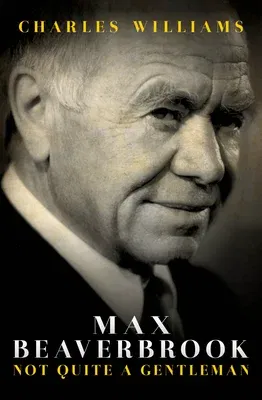Businessman, patriot, politician and archetypal media mogul, Max Aitken,
the first Baron Beaverbrook, bestrode the first seven decades of the
twentieth century like a colossus. He was a force of nature who built a
media empire around his newspaper the Daily Express and used its
circulation - then the largest in the world - to spread his considerable
influence through the largely conservative working classes.
In the Second World War he played a vital part in the fight against the
Nazis by martialling Britain's industrial resources as Churchill's
minister of aircraft production.
Lady Diana Cooper, the leading society lioness of her day, described
Beaverbrook as 'this strange attractive gnome with an odour of genius
about him'. She was far from alone in her admiration. Many others were
similarly captivated including more than a few journalists and
historians, a scattering of politicians and, above all - but perhaps
with a greater sense of realism - Winston Churchill himself. All
succumbed to the charm, sense of mischief and sheer ebullience of the
man.
By contrast, there were also those who saw the darker side of his
character and the list of those who openly disliked Beaverbrook is
impressive: Kings George V and VI, Clement Attlee, Stanley Baldwin,
Lords Alanbrooke and Curzon, Hugh Dalton, Ernest Bevin, as well as a
large segment of the Canadian political and industrial establishments.
Furthermore, Clementine Churchill's attitude towards him, unlike that of
her husband, was one of 'lifelong mistrust'.
As this magisterial biography demonstrates, the Beaverbrook story is one
of continuing fascination. Over eighty years of high and low finance,
political dogfights, wars, conspiracy, media wrangles, sex and grand
living, all of it threading through the dramatic years of the first half
of the twentieth century.

